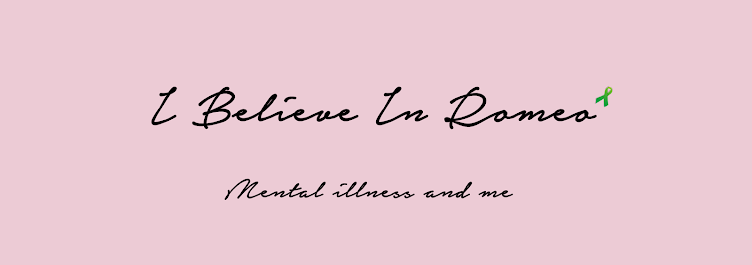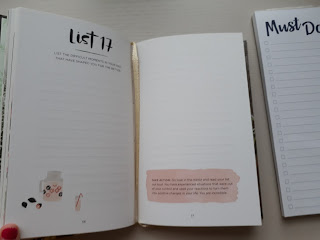And it was a good one. My mental health is in a great place. I feel strong and prepared and ready for the year ahead. My January goals gave me focus and helped me to take small steps towards improving my mental health, and in turn my life.
Here's why January was a good mental health month:
I started going to the gym (again!). We all know that exercise has proven benefits for your mental health, but it's hard to keep the motivation up. This month I didn't pressurize myself. If I got to the gym once a week, that was a victory. And I'd encourage myself to do some squats or ab workouts before bed, just so I could say I did something most days. Rather than feeling guilty about not exercising enough, I focused on doing a little bit whenever I could. I also made sure I went to a class I liked, not one I felt I had to go to, with an instructor I liked. It's a change in attitude to see exercise not as something I had to do, but as something I wanted to.
Time with friends. After realising I was isolating myself and finding socialising hard, I made more of an effort to text friends regularly. Instead of letting weeks pass between contact, I'd message them and see how they are getting on. And I'd record my efforts in a daily tracker to make sure I didn't go more than a day without reaching out to someone. I also got to see an old friend I hadn't seen in nine months, and it was so much fun - like we'd never been apart at all. Definitely a boost to my social confidence.
But I also wasn't afraid to say no. Rather than feeling compelled to accept every social invite, I also said no when I needed to and put myself first.
 Drinking enough water. I also kept a daily log of how much water I was drinking. While I'm good at sipping away when I'm in work, I usually neglect my water intake on weekends when I don't have my bottle of water in front of me. Staying hydrated definitely keeps my mind clear and helps me get through each day.
Drinking enough water. I also kept a daily log of how much water I was drinking. While I'm good at sipping away when I'm in work, I usually neglect my water intake on weekends when I don't have my bottle of water in front of me. Staying hydrated definitely keeps my mind clear and helps me get through each day.Cooked for myself. I love cooking, but between two jobs I usually don't get a lot of time for it. So instead I started to do meal prep on weekends and freeze dinners and lunches for the week. Always find a way to make room for the things you love in life.
Gratitude jar. Everyone should keep a gratitude jar or journal. Recording reasons to be thankful and gracious is humbling, and always reminds me why I should keep going. This month gratitude extended to friends, hugs, the most amazing homemade gin, and my two-year anniversary with my boyfriend.

Building my confidence in work. I've a rough few months in my work life, with my confidence in the office hitting a low just before Christmas. I wanted to tackle this in 2018, so I started a list. (You may have noticed I love lists and trackers). I kept a record of compliments, comments and positive achievements that happened all month. Reading back over the list reminds me that I am capable, and I am good enough. Don't let self-doubt get you down.
I wasn't afraid to treat myself. January can often be a tough month, and with that in mind, I decided to generously treat myself when I needed a pick-me-up. Whether it was a hot chocolate on a cold, stormy night, a new nail varnish, or a new desk organiser just because, I didn't sacrifice treats just because I had a savings goal this month. Remember that self care also means spending a bit of money on yourself sometimes.
How was your January? Did you find that your January goals helped your mental health this month?
Until next time,














